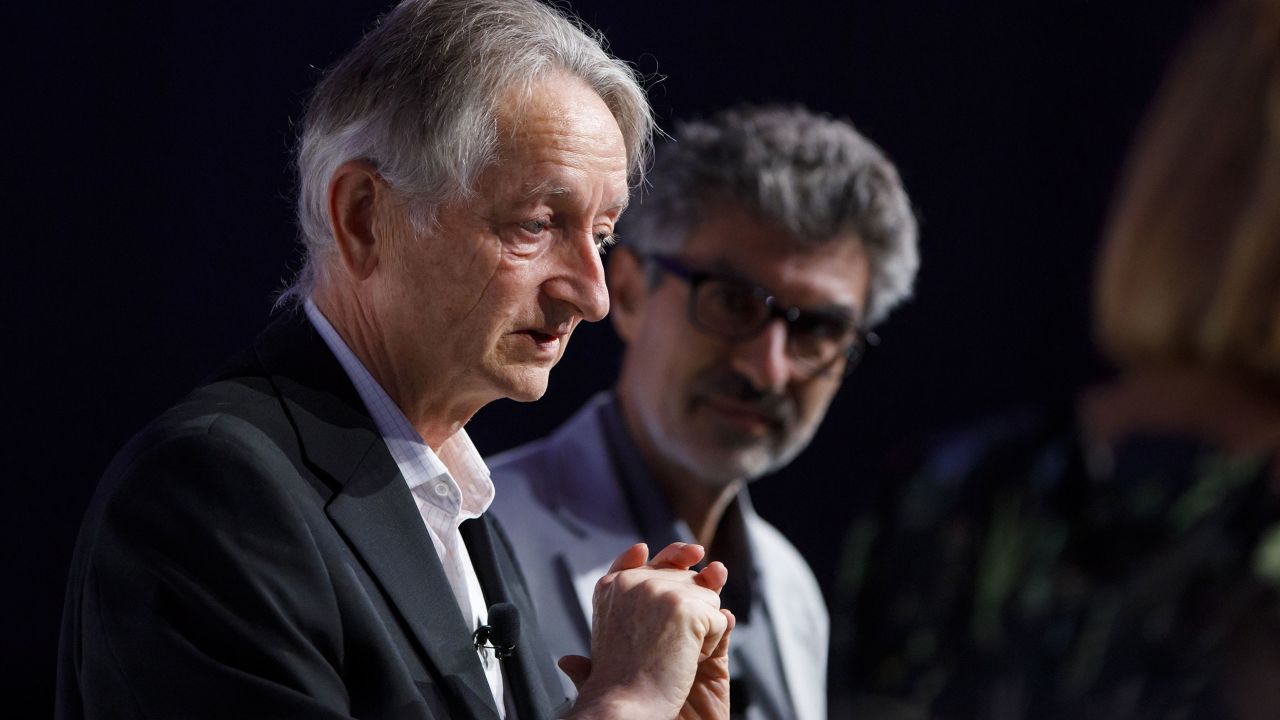New York (CNN) – Jeffrey Hinton, considered the “godfather of artificial intelligence,” confirmed Monday that he left his position at Google last week to warn of the “perils” of the technology he himself helped develop.
Hinton’s pioneering work on neural networks shaped the artificial intelligence systems that power many of today’s products. He worked part-time at Google for ten years on the tech giant’s artificial intelligence development efforts, but now worries about the technology and the role he played in its development.
“I console myself with the usual excuse: If I hadn’t done it, it would have been someone else,” said Hinton. to the New York Times, Who was the first to report his decision.
Jeffrey Hinton, former Google engineer.
In a tweet on Monday, Hinton said he quit Google so he could speak freely about the dangers of artificial intelligence (AI), rather than wanting to specifically criticize Google.
“I left so I could talk about the dangers of AI without thinking about how it might affect Google,” He said Hinton in a tweet. “Google acted very responsibly.”
Jeff Dean, Google’s chief scientist, said that Hinton “made fundamental achievements in the field of artificial intelligence” and expressed his appreciation for “a decade of contributions to Google”.
“We remain committed to a responsible approach to AI,” Dean said in a statement provided to CNN.
“We are constantly learning to understand emerging risks while innovating boldly.”
Hinton’s decision to step down from the company and talk about the technology comes at a time when a growing number of lawmakers, advocacy groups and tech-savvy folks are raising alarm bells about the possibility of a new crop of powered chatbots. Disinformation and displacement of jobs.
The wave of attention ChatGPT gained late last year has helped renew an arms race among tech companies to develop and deploy similar AI tools in their products. OpenAI, Microsoft, and Google are leading the trend, but IBM, Amazon, Baidu, and Tencent are working on similar technologies.
In March, some prominent tech figures signed a letter calling on AI labs to stop training the most powerful AI systems for at least six months, citing “deep risks to society and humanity.” the message, published by the Future of Life Institute, a non-profit organization supported by Elon Musk, came just two weeks after OpenAI announced GPT-4, a more powerful version of the technology that powers ChatGPT. In the company’s early testing and demo, GPT-4 was used to write applications, pass standardized tests, and build a functional website from a hand-drawn sketch.
In the interview with New York timesHinton added to concerns about AI’s ability to kill jobs and create a world where “many people will no longer be able to tell what’s right.” He also noted the astounding rate of progression, which far exceeds what he and others had predicted.
“The idea that these things could get smarter than people,” Hinton said in the interview, “a lot of people didn’t believe it.” “But most people thought that wasn’t the case. So did I. I think it was 30 to 50 or more years away. Obviously, I don’t think so anymore.”
Even before parting ways with Google, Hinton spoke publicly about the potential for AI to do as much harm as good.
“I believe that the rapid advancement of artificial intelligence will change society in ways that we do not fully understand and not all of the effects will be good,” Hinton said in a 2021 keynote address at the Indian Institute of Technology in Bombay. He noted that artificial intelligence will enhance healthcare, but it will also create opportunities for lethal autonomous weapons. “This possibility seems to me far more immediate and terrifying than the prospect of robots taking over, which I think is far-fetched.”
Hinton isn’t the first Google employee to sound the AI alarm. In July, the company fired an engineer who claimed a yet-to-be-deployed artificial intelligence system had become sentient, alleging he had violated its data security and employment policies. Many members of the AI community have vehemently rejected the engineer’s claim.
— Samantha Murphy Kelly and Ramisha Maarouf contributed reporting.

“Proud web fanatic. Subtly charming twitter geek. Reader. Internet trailblazer. Music buff.”

:quality(85)/cloudfront-us-east-1.images.arcpublishing.com/infobae/TEQF6EONZRFGLLLDIDD4L2O4EE.jpg)

:quality(75)/cloudfront-us-east-1.images.arcpublishing.com/elcomercio/XU32LRAEZFDDPNVHLFU3CKVBYY.jpg)



More Stories
How to create 3D videos with my iPhone, it will be very useful even for your business
NASA discovers an anomaly in the Earth’s magnetic field that could have serious consequences for humans
Can the Earth be divided into two parts?